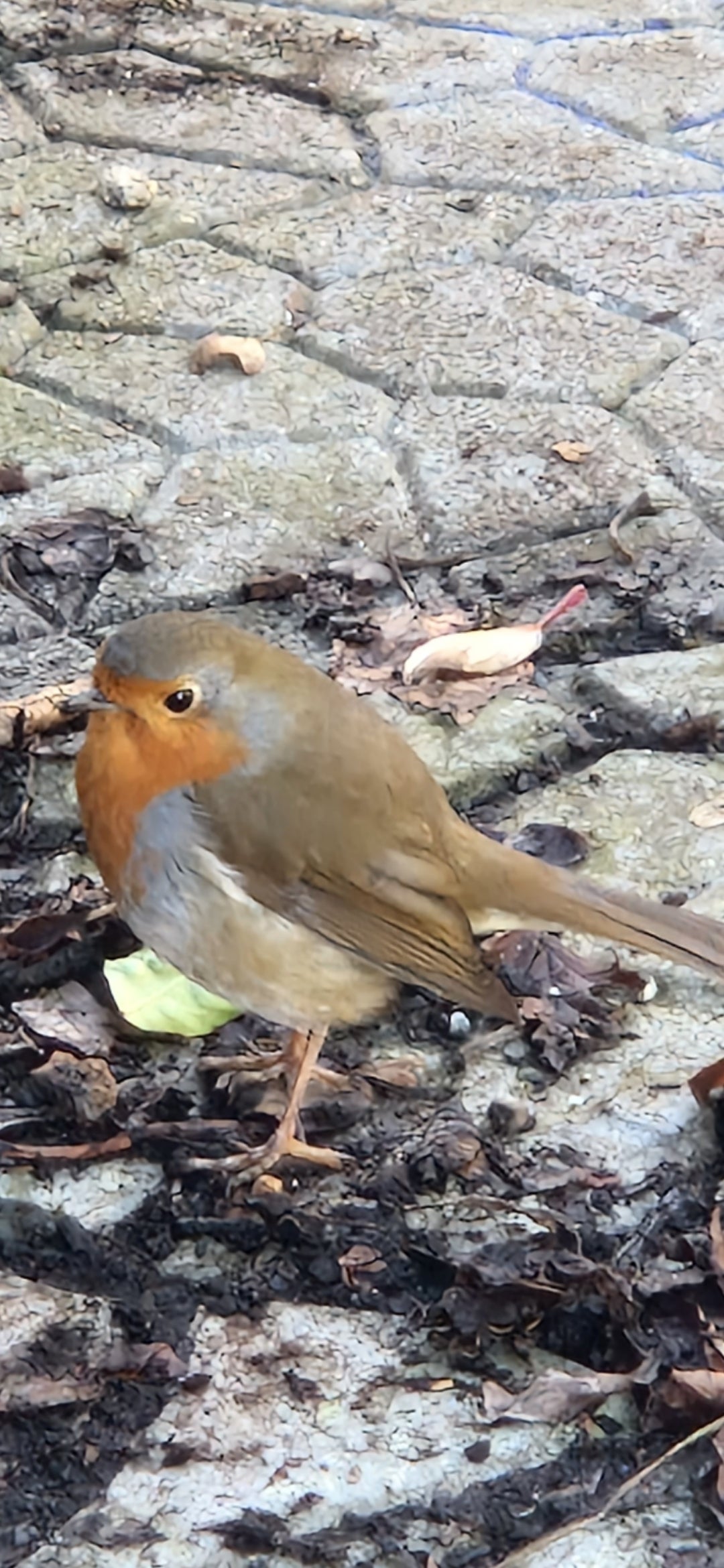As Winter approaches it can be a difficult time for birds with the colder weather there’s more need for food to keep warm and the shorter days means there’s less opportunity for hunting and foraging for food. Also as it gets colder some insects will go into hibernation, burying themselves underground making it difficult for birds to find them. Small birds in particular need to eat a lot to replace the energy they lose trying to stay warm. So by providing a good mix of the right food you’ll be offering a helpful hand to the birds ensuring that they survive the cold Winter months, and they’ll provide you with some entertainment and colour as you watch them fly from feeder to feeder. Amongst them most popular feeds are mix seed mixes - the one I use myself is a “no mess mix” as all the seeds have been de-husked - so the birds eat everything in the mix with no wastage or no throwing out bits that they don’t eat. This particular mix has lots of different ingredients to attract a variety of birds and is rich in vitamins that includes calcium for bone and feather growth along with being a key ingredient for egg production. Seed feeders are designed to hold the seeds without letting them all spill out and can come with a number of ports or access points for the birds to feed from. You can also put seeds on a bird table, on the ground or on a flat surface. Certain birds like Finches and Blue Tits like to feed from a feeder where they hang off whereas Robins are more of a ground feeder or from a table. As I mention Robins, they are one of the first birds to start the dawn chorus and one of the last to stop singing at night, even in the Winter when they sing to defend their Winter territories and there are lots of food that they particularly enjoy - Mealworms in particular are a real favorite with Robins - you can serve them as they are or you can soak them in water to plump them up and make them even more appealing. Robins don’t digest seeds very well so suet cakes, insect mixes, raisins, fruit and Sunflower Hearts are more popular with Robins. They’re great for keeping gardeners company when we’re doing a bit of digging or planting - keeping an eye out for any insects we might expose and they’re great for keeping caterpillars under control. Cats probably pose one of the biggest threats to Robins so make sure feeders and feeding stations are situated in areas that cats can’t sneak up unnoticed. If you are considering a nesting box, Robins will enter open-fronted bird boxes whereas they will not enter boxes with a round entrance hole. These open fronted boxes need to be placed less than 2m in height and amongst thick shrubbery or areas that cats can’t get close to them. To attract Finches to your garden Nyjer Seed is amongst their favorite snack, Nyjer seed is a very fine grain, with high oil content and it’s excellent to attract Goldfinches, Siskins and Redpolls to your garden - the high oil content is particularly beneficial in replacing lost energy and Nyjer seed is said to have played a significant role in increasing the population of Finches. The Nyjer seed is similar to the seeds of thistles and teasels that Finches naturally feed on. Because it’s such a fine seed it needs a particular feeder that has a very small hole to prevent any waste - some seed feeders can have the port swapped over for Nyjer seed or for regular seed. Fat balls and Suet Cakes are great for most birds and require a particular feeder to hold them but both of these are real favorites with birds due to the fat content and some will have an insect mix through them - we even have a mince pie flavored suet cake for that seasonal flavor. The Blackbird is one of our most commonly spotted birds and they will eat from a table but are happier eating from the ground - they love fruit along with Mealworms and Sunflower Seeds and seed mixes that have some maize as part of the ingredients.
Feeding birds will give you hours of pleasure and entertainment and you’ll be doing your bit to look after them over the Winter - a few things to keep in mind - always follow sensible hygiene measures, including washing hands thoroughly after filling and washing feeders.
It’s also not a great idea to leave out the bread even though the birds will eat it, it doesn’t contain the right nutrients that they require during the cold Winter months. So get those feeders topped up and if you’re new to it having a good mix of feed will give you a diverse range of birds visiting your garden.
A few jobs for the week ahead;
- Bring in Summer flowering Geraniums and half-hardy Fuchsias growing in tubs and pots outdoors - these need frost free conditions to survive over winter
- Prepare ground if you plan to plant any bare root trees or hedging plants - bare root plants will be available around mid or late November - you can clear of any grass or weeds in advance of planting
- Plant some indoor, scented bulbs like Paperwhite Narcissus and prepared Hyacinths for a beautiful fragrance around Christmas.
- With plenty of rain forecast it’s a good idea to use some pot feet to raise your pots of the ground - this will help prevent water logging and help to avoid frost damage - make sure your containers have good drainage to prevent them getting too wet over the Winter months
- Reduce the height of Roses to help prevent wind rock in the windy Winter conditions.

